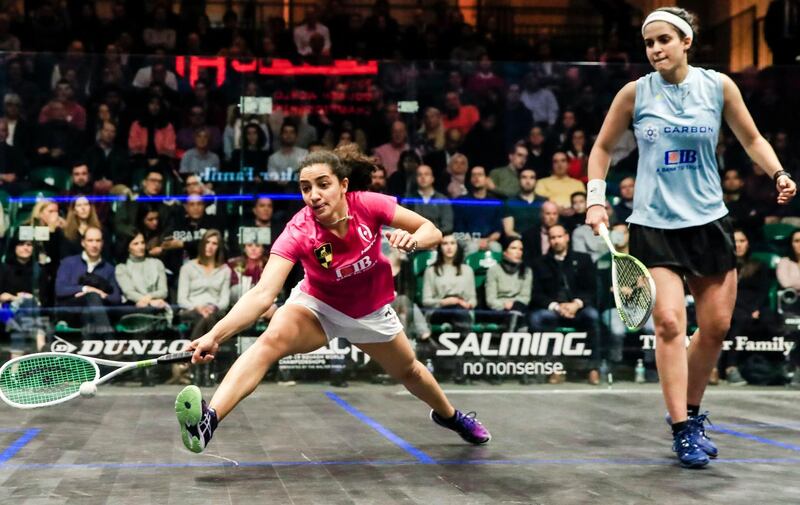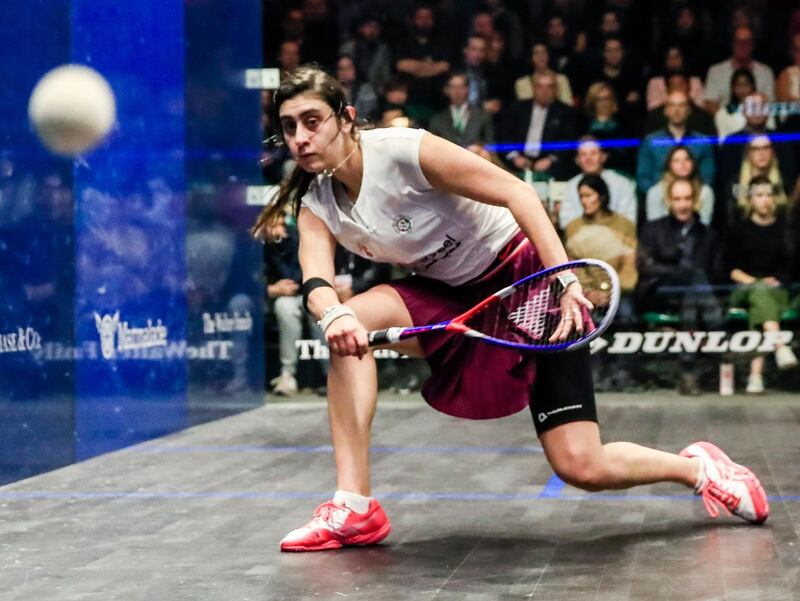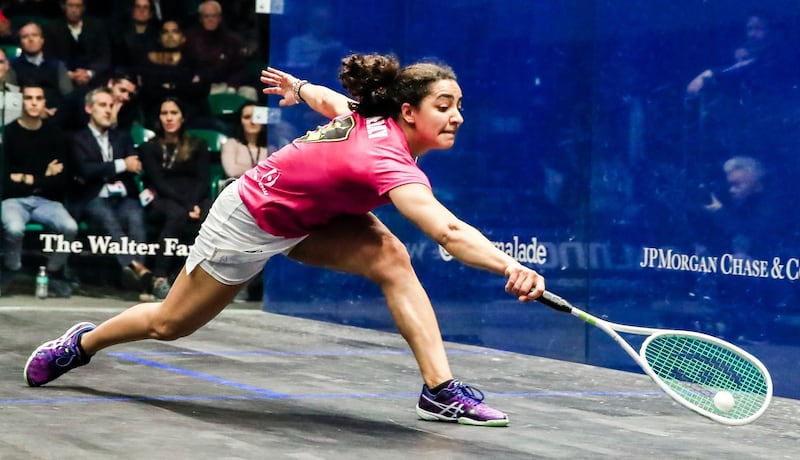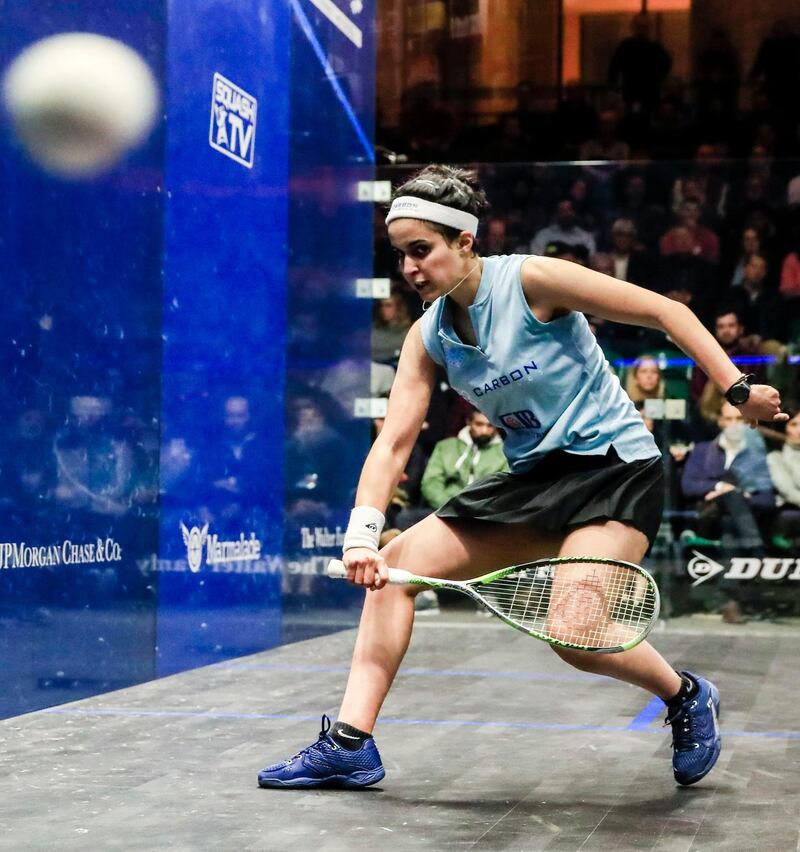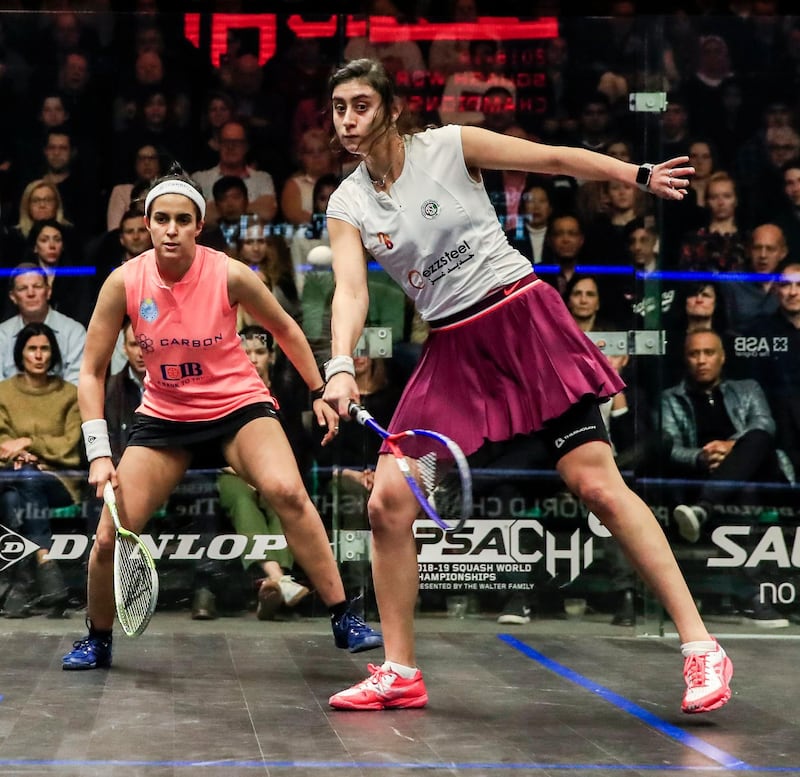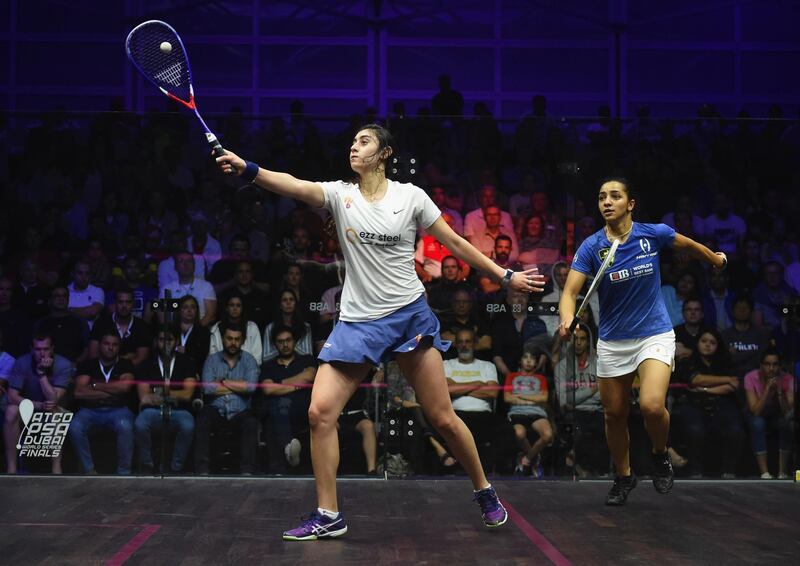The Arab world has made many strides when it comes to women’s sport.
But perhaps no discipline has witnessed such dominance by Arab women the way squash has.
The top three in the world squash rankings earlier this year was made up of Egyptians Raneem El Welily, Nour El Sherbini and Nour El Tayeb at the summit of the sport.
It was in December 2016 that the North African nation swept the top three positions in the world for the first time when El Sherbini, El Welily and Nouran Gohar were ranked in the top three spots.
It had been more than 20 years since a single country had pulled off that feat in women’s squash and now the Egyptians have made it a regular sight.
El Welily became Egypt’s first female squash No 1 when she ended Malaysian Nicol David’s uninterrupted nine-year reign in September 2015, but she vacated that position four months later.
“Getting there for the first time was a weird feeling. I think I lost it because I was in awe that I made it there, not because I was playing worse. I just couldn’t believe it,” said the 30-year-old as she and her compatriots prepare for the PSA World Tour Finals in Cairo, which start on Sunday.

In May 2016, her fellow Alexandrian El Sherbini took over the top spot at the age of 20 and held onto it for 31 consecutive months before El Welily reclaimed it in December.
El Sherbini is still No 2 in the rankings, while El Tayeb, who rose to No 3 in the world for the first time in February 2018, is currently No 5, with Gohar sitting at No 4.
“It is a huge thing,” said El Welily of the women having the top three spots.
“I remember a long time ago, we didn’t have any females at the top of squash except Omneya Abdelkawy, who was in the top 10. Results wise, it was rare for Egyptian women to reach the finals.
“And I remember when Nour El Sherbini and I reached a semi-final for the first time it was a huge achievement for us.
"I told her at the time, ‘do you know how long it took us to have two Egyptians in the semi-finals and how big of a deal this is?’ So imagine that three of us aren’t just making semi-finals, we’re the top three in the world. It’s a big accomplishment of course.”
The trio maintain a close friendship and have each made history in their own way.
El Welily is seen as the trailblazer who made the idea of an Egyptian No 1 possible.
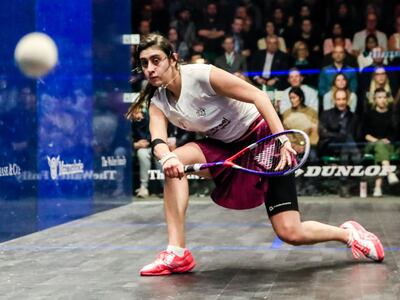
El Sherbini was a child prodigy, winning the World Junior Championship when she was just 13. Now 23, she is the youngest player to win three world titles and was the first Egyptian woman to lift the British Open trophy and the first to become a world champion.
El Tayeb was the first Egyptian to win the US Open and she made history when she triumphed in Philadelphia in 2017 as she and her husband – current men's world No 1 Ali Farag – became the first married couple to win a major title on the same day.
“It’s been the case all our lives. We face each other and so far we’ve been able to differentiate between what happens inside the court and outside,” El Sherbini said of the rivalries.
“Off court we are very close friends, more than you can imagine, but once we’re on court, each one of us just wants to win.
"Once we step on court we focus on squash and our own game but off court we’re very good friends. We were just discussing our plans for the summer together. So we do everything together. It’s very tricky of course, it’s not easy but we know how to manage it.”
The accomplishments have not gone unnoticed in Egypt and the Middle East.
The women’s World Championship will be held in Cairo this October, while the World Tour Finals, which had been staged in Dubai for the past three years, is taking place at the Wadi Degla Club from Sunday until June 14.
Last year, Saudi Arabia hosted a women’s sports event for the first time in the country’s history in the form of the Saudi PSA Squash Masters in Riyadh, which was won by El Sherbini.
El Tayeb is thrilled to see the impact they are having on women’s sport in the region but has a wider vision for what’s to come.
“I think we can have a bigger impact. I’d like for us to do more,” said the 26-year-old El Tayeb as she discussed the inaugural Saudi event.
“They’ve been trying to push women’s sport there. To be able to help a movement like this is great, and I hope we can have a similar impact across all Arab countries.”
Four years ago, squash witnessed a historic merger that brought together the men’s (PSA) and women’s (WSA) tours under one umbrella with the goal of increasing the level of equality and parity in prize money and playing opportunities across the sport.
El Welily and her compatriots take great pride in the fact that squash offers equal prize money but they also admit that the men are not too happy about the merger.
“They feel the growth experienced by the women’s tour has taken away from the growth of the men’s tour. So some of the men are upset about it but I believe it’s more exciting for the crowd, and it’s definitely helped the tour grow,” says El Welily, who is married to men's world No 3 Tarek Momen.
Squash has made a lot of progress in order to appeal to a wider audience. They’ve brought in new technologies to improve broadcast production, they have attracted new sponsors, added new stops on the calendar and invested a lot in their online streaming platform, SquashTV.
Making my way to Cairo today! Pools have been set, looking forward to my first match sunday evening 7pm vs Raneem El Welily! 👊🏻 #worldtourfinals pic.twitter.com/yjekOw7L34
— Tesni Evans (@tesnievans) June 7, 2019
Still none of that has succeeded in convincing the International Olympic Committee (IOC) to add squash to the Olympics roster.
The latest snub came a couple of months ago when it was revealed that the organisers of the 2024 Paris Games have proposed the inclusion of breakdancing which is now subject to the IOC’s approval.
On the rejection El Sherbini said: “I feel like I’m neutral. I will never give up on trying to get squash into the Olympics but at the same time I’ve already moved on. We don’t need to be in the Olympics, we are already a good sport and we’ve shown our level.
“We are playing and we’re happy with what we’ve got. All tournaments are sold-out year-round. We have proven ourselves away from the Olympics.
“Of course I wish we were there but I’ve also moved on. We won’t keep begging. If they don’t want us, we don’t want them.”
El Welily believes the sport is taking “baby steps” in the right direction and hopes to see more matches televised in Egypt and across the world in the near future while believing being involved in the Olympics is no longer be and end all.
“There is a bit of hope, that we have a long-term or broader vision which can take us to the next level," she added.
"But not making it into the Olympics, now that I’ve seen how they choose the sports they are introducing, it is unfortunately not something appealing anymore."
With the Olympic dream dissipating into thin air once again, the top ladies of the tour are choosing to focus on the future of squash and the positive influence they can have on women’s sport in the region.
With the likes of El Welily, El Sherbini and El Tayeb at the helm, it is likely that future turns out to be very bright.
